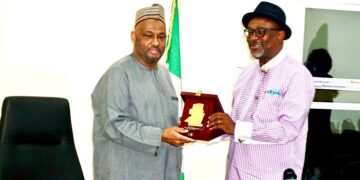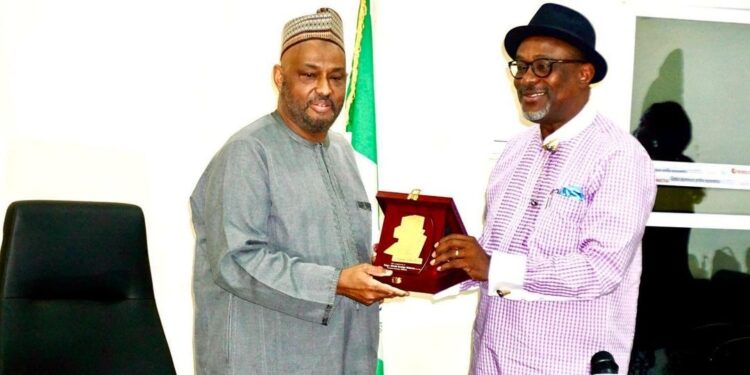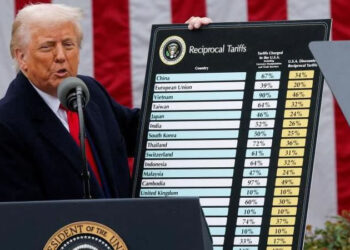By John Ikani
The Nigerian Content Development and Monitoring Board (NCDMB) has called for collaboration between the Board and Standard Organisation of Nigeria (SON) for the development of Nigerian Content.
Executive Secretary of the NCDMB, Engr. Simbi Kesiye Wabote FNSE made the call on Tuesday when he led Management staff of the board to pay a courtesy visit to the Managing Director/Chief Executive of Standards Organisation of Nigeria [SON], Mallam Farouk A. Salim at his office in Abuja.
Engr. Wabote in his address identified challenges confronting Nigerian content development to include difficulties in maintaining/setting a uniform standards for locally produced/manufactured equipment, materials, products and goods that are generally acceptable by all players in the Industry.
The local content boss went on to itemize main focus of the collaboration in four key areas:
• Certification of equipment, materials, products, goods and services utilized in the Nigerian Oil and Gas Industry.
• Set-up a uniform standards for locally produced/manufactured equipment, materials, products and goods that are generally acceptable by all players in the Industry.
• Improvement in measurement accuracies for locally produced/manufactured equipment, materials, products, goods and services.
• Circulation of information relating to standards in the Nigerian Oil and Gas Industry.
He expressed optimism that the collaboration will chart a new course for the development of Nigerian Content particularly in the area of setting a uniform standards for locally manufactured equipment, materials, products, goods and services utilized in the Oil and Gas Industry.
Responding, the Managing Director/Chief Executive of SON, Mallam Farouk A. Salim thanked Engr. Simbi Wabote and his team for the visit and promised to work closely with the Board to achieve the purpose of this collaboration.
Mallam Salim also agreed to establish a working committee between NCDMB and SON as soon as possible and train NCDMB staff to further strengthen and build a cordial relationship between the two agencies of government.




































